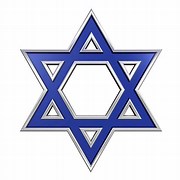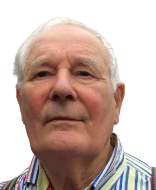Are we now, eighty years after the catastrophes of previous centuries, getting to the point where the Jewish people, the Christian churches and the Islamic umma, are becoming religious communities in which the commandment of love and peace among men, as part of the Covenant that the Creator made with all mankind, becomes central? Given the events since 7 October 2023, I have observed only sporadic signs in this direction. Living Halacha, God’s words, including for Christians and Muslims according to the concept of the Torah for the nations, the seven Noachid commandments, with heart and soul, that changes the world for the better, that works on tikkun olam and prevents internal drives from defiling ourselves and God’s Covenant. In this talk, I limit myself to the dialogue between Jews and Christians.
Whether Christians can be integrated into the Covenant of the Holy One, blessed be He, with Israel depends, I believe, on religious self-understanding and the narratives in which that self-understanding is anchored. The answer lies with those who let the essence of the Covenant in the Tenach speak for itself. Jews and Christians hold to the legitimate tenets of their faith, but unfortunately still leave too little room for the other’s self-understanding.
It must be clear, in dialogue, in learning and in celebrating feasts, that the recognition of the contemporary Jewish people in the land of Israel – as God’s partner in the family covenant with Abraham, Isaac and Jacob and in the people’s covenant of Sinai – is a fundamental starting point that must be recognised in an absolute sense within any Christian theology. I refer here to the Letter of Hebrews (12:18), which says: ‘For you did not approach to a palpable and blazing fire, with darkness, thunderclouds and stormy winds, in which the trumpet sounded and the Voice spoke the words, and the hearers begged that he would no longer speak to them…’ (see also Exodus 19). The former Pope John Paul II spoke repeatedly in this spirit, but unfortunately this is too little addressed in the
contemporary Christian debate.
By limiting our claim to the only truth – as Prof Moshe Idel argues – we free up space for self-criticism, including criticism from outside, for new insights and for letting God’s spirit blow. If Christians, Muslims and non-Jews did not give this space, the threat is not only rigidity and self-destruction, but also denial and destruction of Jewish ‘others’. May God forbid this and keep us in His Covenant.
The church must resist the temptation of the old, ancient world with its inertia and desire for salvation from this world. The church must resist the temptation to be redeemed from the earthly, with all its finiteness and burdens, and enter into the false hope of escape to a perfect ideal reality in the hereafter. If Christians, Muslims and non-Jews allowed this escapism, the world would fall into the hands of villains like Hitler, Stalin, Pol Pot, Saddam Hussein and Assad. No, not so: if we as partners in the Covenant embrace this imperfect world and improve it to the best of our ability, that is doing God’s Covenant in the reality of the here and now.




